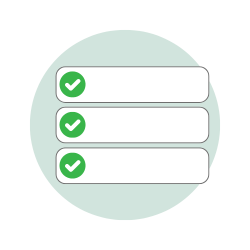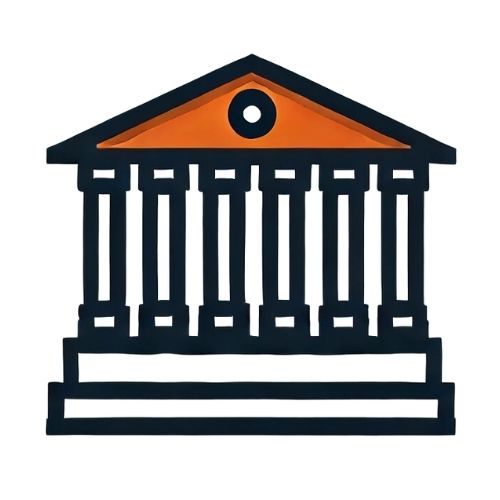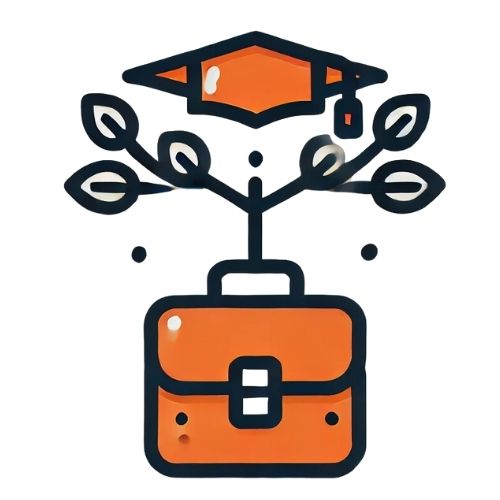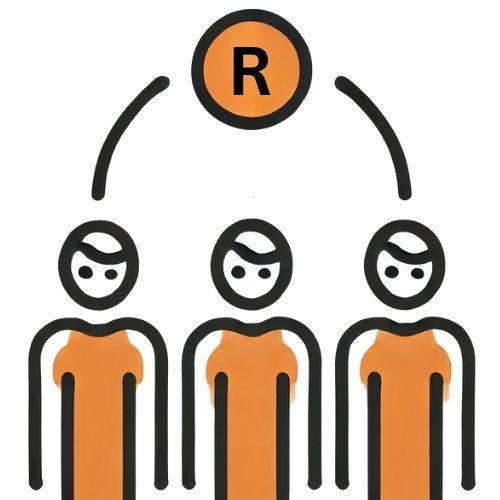
Student Loans
- Multiple loan offers
- Get approved today
- Free application – no commitment
Compare top lenders
Together with our partners, we provide access to up to 19 reputable banks and lenders. Explore offers tailored to your needs and choose the most suitable offer. Each lender abides by the regulations outlined by the South African National Credit Regulator (NCR).
What Are Student Loans?
Student loans are financial products designed to help students pay for the costs associated with higher education, such as tuition fees, accommodation, textbooks, and other academic-related expenses. These loans are specifically tailored for individuals pursuing tertiary education who may not have the financial means to cover their educational costs upfront.
Types of Student Loans in South Africa
Government-Funded Loans
The National Student Financial Aid Scheme (NSFAS) is a primary option for South African students from low-income families. This government-funded programme provides financial assistance to students at public universities and TVET colleges. NSFAS loans are income-based, meaning only those with a combined household income below a certain threshold are eligible. One major benefit is that a portion of the loan can be converted into a bursary based on academic performance, reducing the repayment burden.
- Application Process: Applications are completed online through the NSFAS portal. Students must meet income and academic criteria and submit documents during the application period.
- Approval and Disbursement Timeline: NSFAS typically processes applications over several weeks, with results announced before the academic year begins.
- When Repayment Begins: Repayment typically starts only once the student has graduated and secured employment with an annual income above a certain threshold. This ensures repayment is tied to the borrower’s earning capacity.
- Repayment: Repayment terms may begin immediately after disbursement, during studies (interest-only payments), or shortly after graduation. These terms vary by lender and loan agreement. The repayment amount is income-contingent, meaning graduates only pay a small percentage of their salary (e.g., 3%-10%) once they earn above a certain income. NSFAS also offers forgiveness options for exceptional academic performance.

Private Bank Loans
Several South African banks, including Standard Bank, FNB, ABSA, and others, offer private student loans tailored to cover educational costs. Unlike NSFAS, private loans are typically available to students from middle to high-income families. These loans often require a guarantor and come with interest rates that vary based on the lender and repayment plan. While private loans can cover broader expenses, such as textbooks, accommodation, and even study abroad opportunities, they lack the subsidy benefits associated with government loans.
- Application Process: Applications are submitted directly to the bank, either in person or online. The process involves credit checks, co-signer assessments, and verification of submitted documents.
- Approval and Disbursement Timeline: Bank loans may be approved within days to weeks, depending on the institution’s evaluation process. After approval, funds are disbursed directly to the institution for tuition or to the student for other educational expenses, ensuring timely access to resources for the academic year.
- When Repayment Begins: Repayment terms may begin immediately after disbursement, during studies (interest-only payments), or shortly after graduation. These terms vary by lender and loan agreement.
- Repayment: Repayments are typically fixed and include both the principal amount and accrued interest. Unlike NSFAS, these loans are not income-sensitive, which can lead to higher repayment amounts regardless of the borrower’s financial situation.
Scholarships and Bursaries
For students looking to avoid debt altogether, scholarships and bursaries are valuable alternatives. Scholarships are often merit-based, rewarding academic excellence, while bursaries are frequently need-based or offered by companies in exchange for work commitments after graduation. These options, though competitive, provide financial relief without the burden of repayment, making them an ideal choice for eligible students.
You will receive your loan offers immediately after filling up the loan application. Check what kind of loan offers you will get!
Who Can Apply for a Loan?
- You are over 18 years old
- You are employed and employment has lasted for more than 6 months
- Your loan should not be more than 8 times larger than your monthly income
How to Apply for a Student Loan
Before applying for a student loan, it’s essential to gather all the necessary documentation. This typically includes:
- Proof of identity (ID documents or passport).
- Proof of income for the applicant or their parents/guardian (e.g., payslips or bank statements).
- Admission confirmation from an accredited institution.
Academic records (for some loans). For private loans, a co-signer or guarantor is often required to provide financial security. This person, usually a parent or guardian, agrees to take responsibility for repayment if the borrower defaults.
Compare Loans in 3 Easy Steps

Fill in our application
Complete our loan application in minutes. Just enter your details and choose your desired loan amount.

Choose a loan offer
Based on your responses, you will receive a variety of personalised offers from up to 19 lenders.

Get your money
You are free to accept or decline the offers as you please. The offers are non-binding.
Why Use Arcadia Finance?
- 100% free: The application is free and does not include any hidden fees.
- Quick & easy: The whole application process is done online in minutes.
- Convenient: Compare up to 19 banks & lenders with one application.
- Non-binding: You decide if you want to accept or decline your offers.
- Safe: Your personal data is safe with us.
What is Arcadia Finance?
Arcadia Finance helps South Africans in the search for loans from different banks and lenders through our loan broker partners. We provide access to up to 19 reputable banks and lenders. By completing our loan application you will get multiple loan offers, which you can compare and select the most suitable offer. The service we offer is completely free of charge and you will not commit to anything by requesting for loan offers via Arcadia Finance. We only work with trusted loan brokers who collaborate with NCR licensed banks and lenders in South Africa.

Pros and Cons of Student Loans
Advantages
- Access to Education: Student loans make higher education accessible to students who may not have the financial means to cover tuition and related expenses upfront. They enable learners to pursue degrees and diplomas that can lead to better career opportunities.
- Flexible Repayment Terms: Some loans, especially government-funded options like NSFAS, offer flexible repayment structures, including income-contingent plans. These terms ensure repayments are manageable and adjusted to the borrower’s financial situation after graduation.
Disadvantages
- Interest Rates and Debt Accumulation: Private student loans often come with high interest rates, which can significantly increase the total amount repayable. Over time, this can lead to a substantial debt burden for students.
- Long-Term Financial Burden: Many graduates face prolonged repayment periods, which can delay other life goals like buying a home or starting a business. For students unable to secure stable employment post-graduation, the financial strain of loan repayments can become a source of stress.
6 Strategies for Managing Repayments
- Create a Budget and Stick to It: Develop a clear monthly budget to track your income and expenses. Allocate a specific portion for loan repayments and stick to it, ensuring you prioritise your financial obligations.
- Set Up Automatic Payments: Automate your repayments to avoid missing deadlines. This not only ensures consistency but may also qualify you for interest rate discounts with some lenders.
- Pay More Than the Minimum: Whenever possible, make extra payments toward your loan to reduce the principal balance faster. This helps save on interest and shortens the repayment period.
- Refinance for Better Rates: If eligible, refinance your loan to secure a lower interest rate or more favourable terms. This is especially helpful with private loans if your financial circumstances have improved.
- Take Advantage of Income-Driven Plans (If Applicable): For loans like NSFAS, opt for repayment plans tied to your income. This ensures payments remain manageable, especially during periods of lower earnings.
- Cut Unnecessary Expenses: Review your spending habits and eliminate non-essential expenses. Use the extra funds to boost your repayments and reduce your debt more quickly.
Secure your loan effortlessly with Arcadia Finance
The loan application is free, and you can pick from a variety of 19 respected lenders. We only work with trusted loan brokers who collaborate with NCR licensed banks and lenders in South Africa.
After submitting your loan application to us, we will send it through our loan broker partners to a number of different banks and lenders for review. Within minutes, you’ll receive a variety of loan options that are available for you. Select the one that best fits your needs.
Remember, all offers are no-binding, so if you don’t find what you’re looking for, you’re free to decline.
Alternatives to Student Loans

Government Scholarships and Grants
Government scholarships and grants provide a debt-free way to finance higher education. These funds are typically awarded to students who demonstrate exceptional academic performance, financial need, or a combination of both. Programmes like the Funza Lushaka Bursary for teaching students or the DHET bursaries for certain fields help alleviate financial burdens. Unlike loans, scholarships and grants do not require repayment, making them an attractive option for eligible students.

Work-Study Programmes
Work-study programmes allow students to earn money while pursuing their education. These initiatives, often facilitated by universities, provide part-time employment opportunities on or near campus. Jobs may include tutoring, administrative support, or research assistance, enabling students to fund their education while gaining valuable work experience. Work-study programmes are particularly helpful for students who wish to minimise debt while maintaining their academic responsibilities.

Crowdfunding and Family Contributions
For students who don’t qualify for scholarships or loans, crowdfunding and family contributions can be vital resources. Crowdfunding platforms like GoFundMe or BackaBuddy have become popular for raising money for tuition and related costs. Many students share their personal stories online to gain support from their communities. Family contributions, where possible, can also play a role, either through direct financial support or pooling resources within extended families to invest in the student’s education. These methods, while informal, can provide crucial financial relief without the long-term commitment of loans.
Conclusion
Financing higher education in South Africa can be challenging, but with the variety of options available—ranging from government-funded loans and private bank loans to scholarships, work-study programmes, and crowdfunding—students can find solutions tailored to their needs. Each choice comes with its own advantages and challenges, making it crucial for students to carefully assess their circumstances and explore all available opportunities. By making informed decisions and planning ahead, students can pursue their educational goals without compromising their long-term financial stability.
Frequently Asked Questions
NSFAS is a government-funded loan for low-income students with no interest and repayments based on income. Private loans from banks like Standard Bank require a guarantor, charge interest, and may need repayments to start while studying.
For NSFAS, students must come from households earning below a set threshold and be enrolled in a public institution. Private loans require proof of admission, a guarantor, and necessary documentation.
NSFAS does not require a guarantor, but most private banks do. Some smaller lenders might offer loans without a guarantor, usually with higher interest rates.
With NSFAS, repayments start only when your income exceeds a certain level. Private loans may affect your credit score or involve legal action if you default. It’s important to contact your lender if you face difficulties.
Yes, options include scholarships, bursaries, grants, work-study programmes, part-time jobs, crowdfunding, and family contributions, which can help reduce the need for loans.




